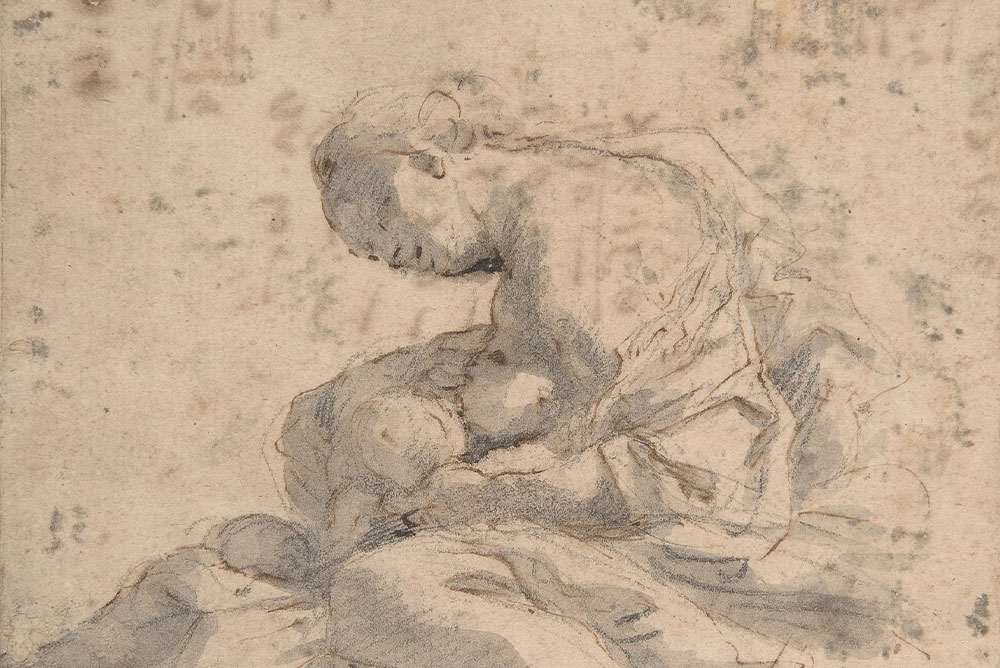
Mother and children, drawing, anonymous, 17th century. Courtesy of Metropolitan Museum of Art/Wikimedia Commons.
At first, they said the mothers were drowning
in their own waters. Each mother agreed.
I am drowning she said. They said you should know
it is not your fault. You should go deeper
into warmer waters, you should try
writing it down. You should set an alarm.
You should light a candle, you should bathe
in the waters, you should drink heavily, you
should get a full stable of pills and magazines
you should hashtag, hashtag, hashtag.
You must surface to breathe your own air, first, but
only after everyone else has breathed.
Then the mothers began beaching themselves.
They said the mothers feel guilty because
they do not have a village. And, indeed,
no village showed up to roll the mothers
back into the sea. They said the mothers
have distanced themselves from toxicity
by which they meant the people who had
raised the mothers. They said the mothers,
though fatty, have lost their sheen. They can
no longer use the sun to orient their position
or to approximate the scale of their devotion.
The mother’s families had told them no man
will ever want you like that, which was
a relief for those who didn’t want men and a relief
for those who didn’t want too many men, but a sentence
nonetheless. They claimed no manufacturer could recreate
the nutrient layer by which a mother should feed a household
from infancy through adulthood. No one could identify
its thumbprint. Teachers in the schools asked the mothers
how to teach, and the doctors asked them why they
had come in, as they looked pointedly at the mother’s fins.
Do not feel guilty they said. And sailed away.



